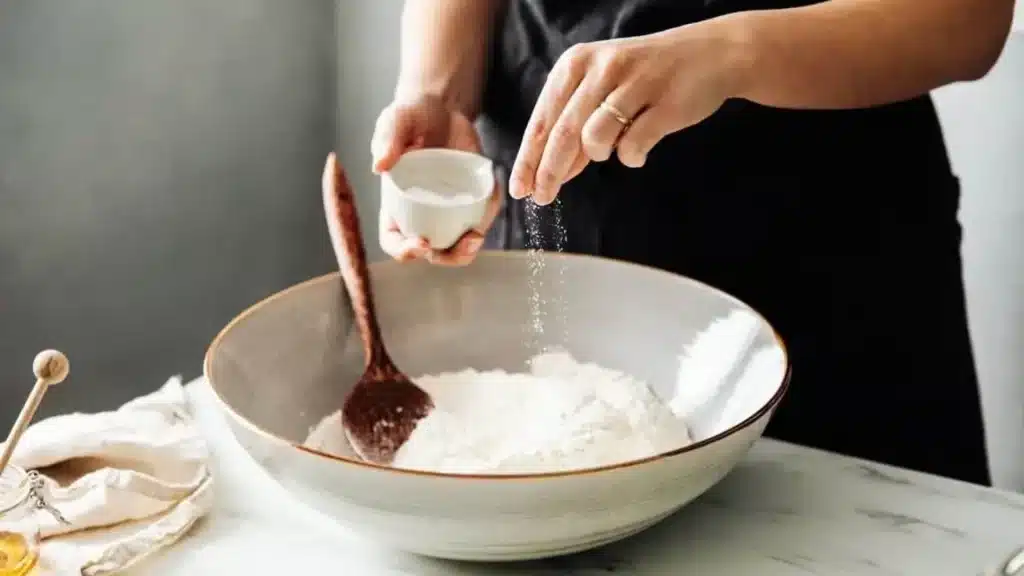
When we think of baking, the first ingredients that come to mind are usually flour, sugar, butter, and eggs. But there’s another small ingredient that plays a big role: salt. Even though we add it in tiny amounts, salt can change the taste, texture, and quality of our baked goods in surprising ways.
So, what does salt do in baking? Let’s explore how this simple mineral transforms bread, cakes, and cookies into delicious treats.
Americans consume about 3,400 milligrams of sodium daily well above the recommended 2,300 milligrams and more than 70% of that comes from packaged foods like bread and pastries [1]. That’s why understanding the role of salt in baking isn’t just about taste; it’s about health, too.
Table of Contents
Did You Know?
In our everyday eats, bakery items play a big part in sneaking in sodium around 70% of it is added during processing, and in Western diets, that means 70-75% of our total intake comes from ready-made foods, encouraging us to bake our own with control.[2]
Why Do We Use Salt in Baking?
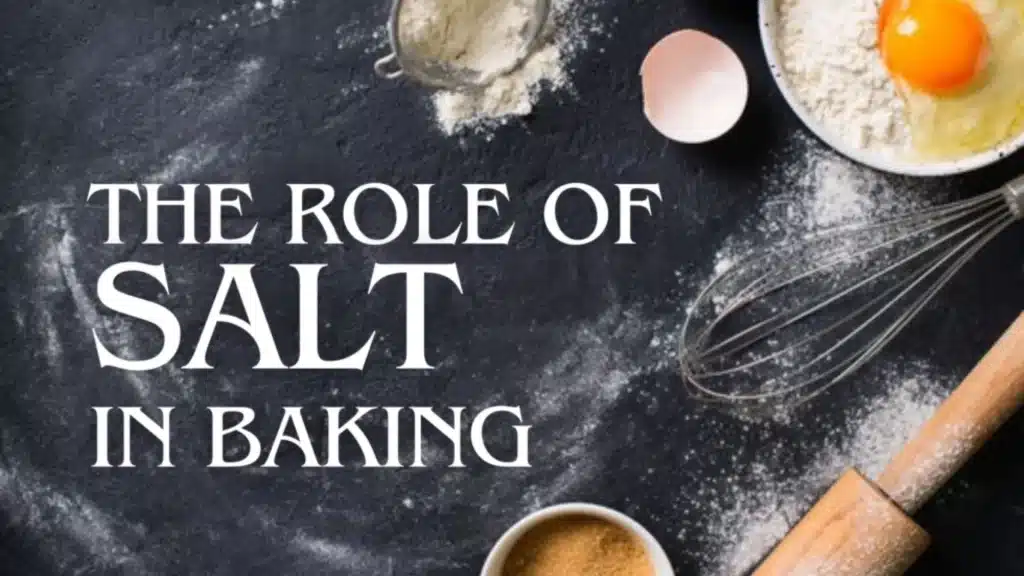
Salt is much more than just a seasoning. It has three main jobs in baking:
- It makes flavors taste better – A pinch of salt makes sweet things taste sweeter, chocolate taste richer, and spices taste stronger.
- It controls yeast – In bread-making, salt slows down yeast so that the dough rises evenly. Without it, bread can rise too fast and collapse.
- It makes dough stronger – Salt tightens gluten, the protein in flour, which gives bread chewiness and cakes structure.
In short, salt balances taste, supports texture, and helps bread rise properly.
What Happens If You Bake Without Salt?
Leaving salt out of your baking might sound harmless, but the results are often disappointing:
- Bland taste – Cakes and cookies taste overly sweet, while bread tastes plain.
- Poor texture – Bread without salt can be weak and crumbly instead of chewy.
- Shorter freshness – Salt helps baked goods stay moist and last longer.
Even though it seems like a small ingredient, salt is one of the silent heroes of baking.
Read About: What Is Smoked Salt
How Salt Works in Baking
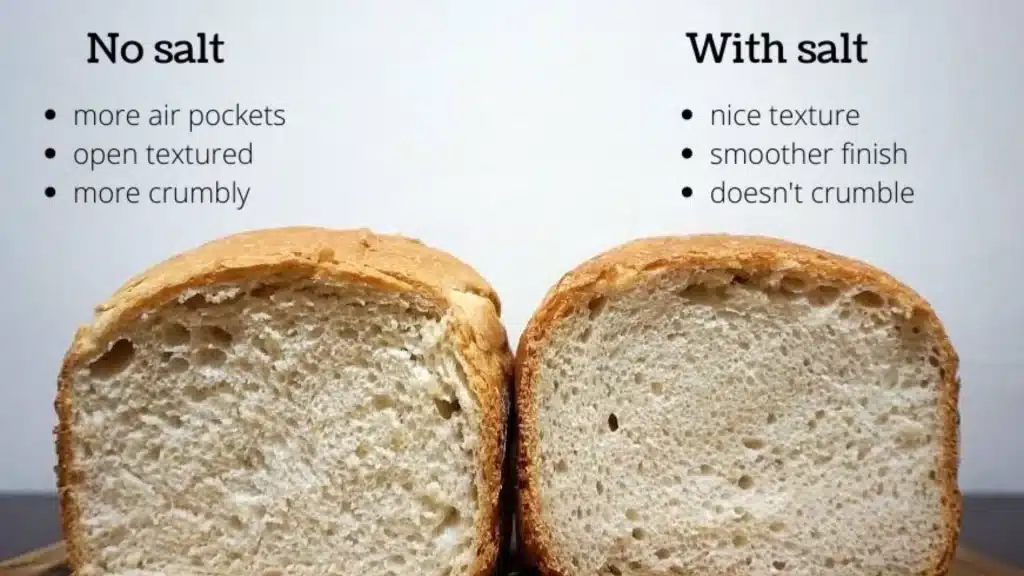
Let’s take a closer look at the science of salt in baking:
1. Salt Makes Flavors Pop
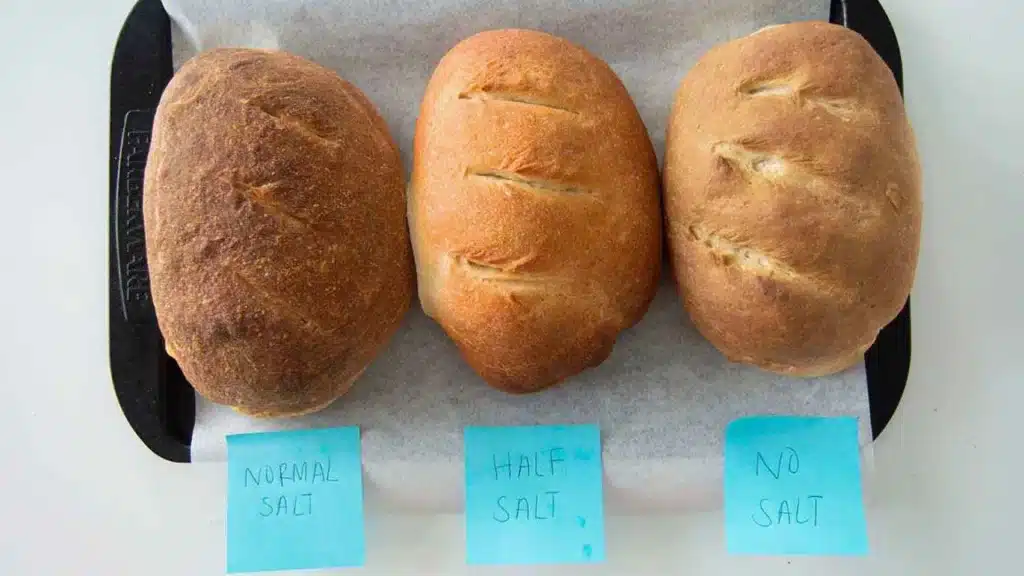
Salt is a natural flavor booster. It doesn’t just make food salty, it makes chocolate richer, vanilla stronger, and caramel more balanced. Without it, baked goods taste flat. In fact, trials show that reducing salt in sweet biscuits by up to 33% didn’t impact consumer liking,[3] proving you can trim sodium without losing indulgence. Salt’s ability to balance flavors is why that “pinch” makes chocolate richer, caramel smoother, and butter taste more buttery.
2. Salt Controls Yeast in Bread
Yeast is what makes bread rise, but if it works too quickly, your bread can develop big holes or even collapse. That’s where salt steps in it slows yeast down, giving the dough time to rise slowly and evenly, resulting in a soft interior and golden crust. In fact, reducing salt speeds up yeast activity and CO₂ production,[4] which can lead to over-proofed bread. The right balance of salt amount ensures fermentation happens at a steady pace, creating consistent texture while also developing rich flavor.
3. Salt Strengthens Dough
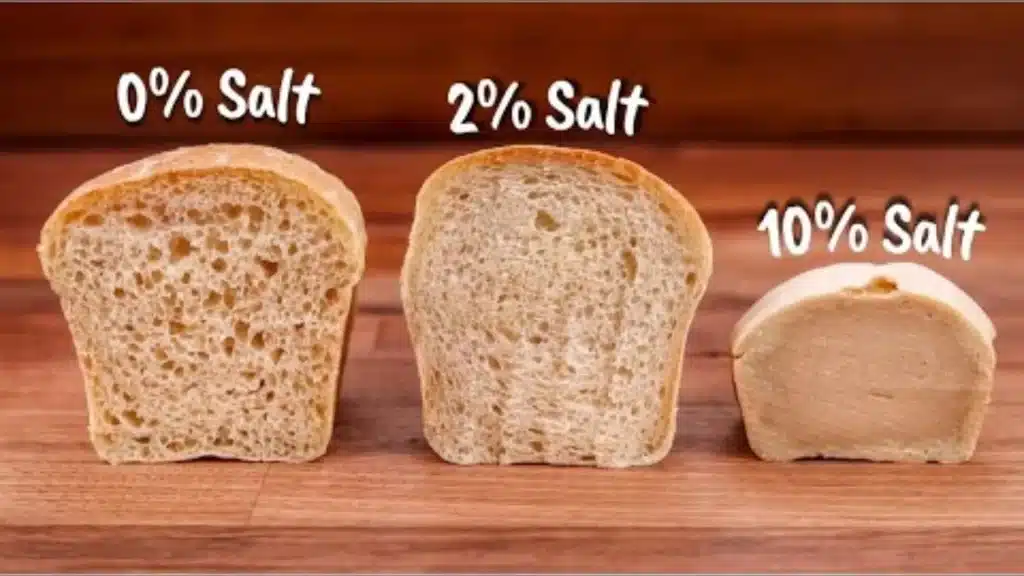
Salt interacts directly with gluten, the protein network that gives bread structure. Studies show it can improve gluten strength by as much as 86%,[5] creating dough that’s elastic, easier to knead, and less likely to tear. This means bread rises higher and holds its shape better in the oven. Without enough salt, the dough can become sticky and weak, making it harder to handle.
Learn:
How to Use Himalayan Salt for Cooking
What is Himalayan Food
Types of Salt for Baking
Different types of salt can be used in baking, and each has its own unique quality.
Type of Salt | Texture & Flavor | Best Used For |
Table Salt | Fine, iodized, dissolves quickly | General baking, everyday use |
Kosher Salt | Coarse, pure, no iodine | Bread dough, savory baking |
Sea Salt | Natural, mineral-rich, slightly coarse | Cakes, cookies, finishing sprinkle |
Himalayan Pink Salt | Soft, mild, full of minerals | Breads, cookies, unique flavor |
Fleur de Sel | Delicate, flaky, gourmet | Sprinkling on cookies or caramel |
Tip: Always measure carefully. A teaspoon of fine table salt is heavier than a teaspoon of coarse sea salt.
Read More About: Types Of Salt For Cooking
The Role of Salt in Cakes
In cakes, salt might seem unnecessary because they are sweet, but it plays a quiet yet important role:
- It balances sweetness, making sure the cake isn’t too sugary.
- It helps strengthen the cake batter so it holds its shape.
- It brings out flavors like vanilla, cocoa, and cinnamon.
That’s why most cake recipes include at least a small pinch of salt.
The Role of Salt in Bread
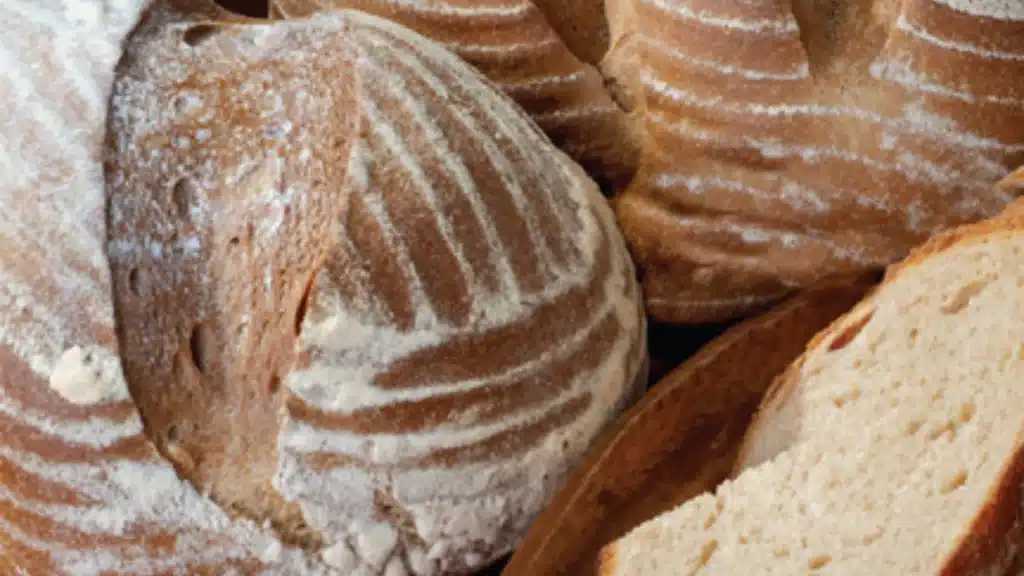
Bread is where salt truly shines. Bakers around the world consider it the soul of bread. Here’s why:
- Controls fermentation – Salt slows down yeast so bread rises slowly and develops flavor.
- Improves texture – It makes the inside soft yet chewy.
- Adds flavor – Bread without salt tastes dull and floury.
- Helps crust color – Salt improves browning in the oven.
- Keeps bread fresh – It slows down staleness and prevents it from going bad quickly.
Without salt, bread would taste flat, look pale, and go stale fast.
Choosing the Right Salt for Baking
When baking, think about the following:
- Grain size – Fine salt dissolves quickly in cake batters; coarse salts are great for sprinkling.
- Clean flavor – Avoid salts with additives, as they may change the taste.
- Mineral content – Himalayan pink salt and sea salts add a gentle, natural flavor.
If you want high-quality salts that enhance your baking, Sobaan Salts offers premium Himalayan and natural salts perfect for bread, cakes, and cookies.
Explore: Types Of Grains In Himalayan Salt
Salt in Our Daily Diet
Did you know that bread and bakery items are one of the biggest sources of salt in our diets? On average, bread contains around 2% salt by weight, which contributes to about 13% of daily sodium intake.
That means the salt we add to baking isn’t just about taste, it’s also a big part of our nutrition.
This excessive French sea salt, read as “blossom of salt,” is a salt I save for sprinkling on toward the end of a treat. Perhaps on top of a chocolate chip treat or in salted caramel paste. It’s more costly than different salts, so I use it carefully. I purchased mine at Dignitary and Deluca in DC an extended get-away a long time back, yet you can likewise get it on Amazon.
Epsom salt can be used as a regular fertilizer for plants. The magnesium and sulfur in Epsom salt help strong plant growth, subsequent in greener leaves and solider stems.
Conclusion
Salt may be one of the smallest ingredients in a recipe, but it has one of the biggest impacts. From giving bread its structure to balancing the sweetness in cakes, salt is the secret that turns simple recipes into delicious masterpieces.
So next time you bake, don’t skip the salt. With just a pinch, you can take your cookies, cakes, and bread to the next level. And for the best results, trust Sobaan Salts for pure, natural salts that bring out the best in your baking.
About 70% of sodium in the U.S. food supply comes from packaged and processed foods, with baked goods being the top source. Bread typically contains around 2% salt by weight of ingredients, contributing significantly to daily sodium intake due to high consumption levels. In daily routines, 13% of sodium intake comes from bread and bakery products, highlighting their role in overall diet.
Source: Compilation from University of Illinois ACES, ResearchGate, and ScienceDirect articles. Reference Link: https://aces.illinois.edu/news/reducing-salt-bread-without-sacrificing-taste
References:
- King Arthur Baking – Salt Reference
- Exploratorium – Purpose of Salt in Cake Recipes
- NCBI – Influence of Sodium Chloride on Technological Properties of Bread
Share This Post
Article By

